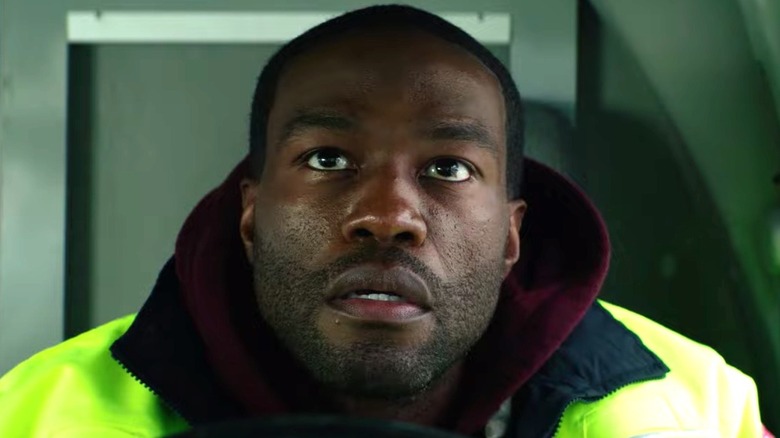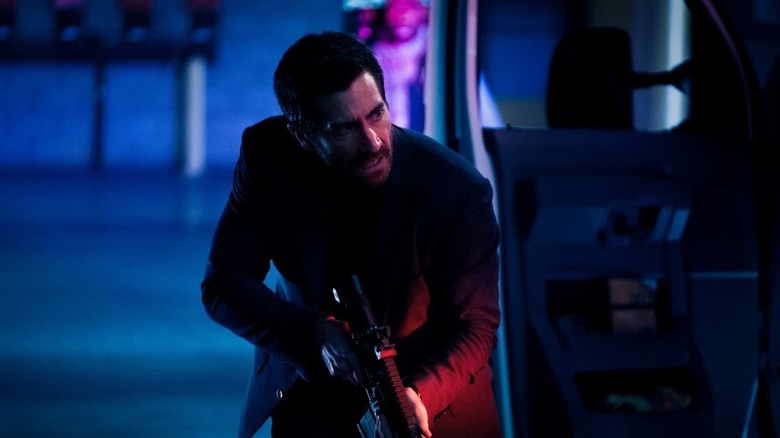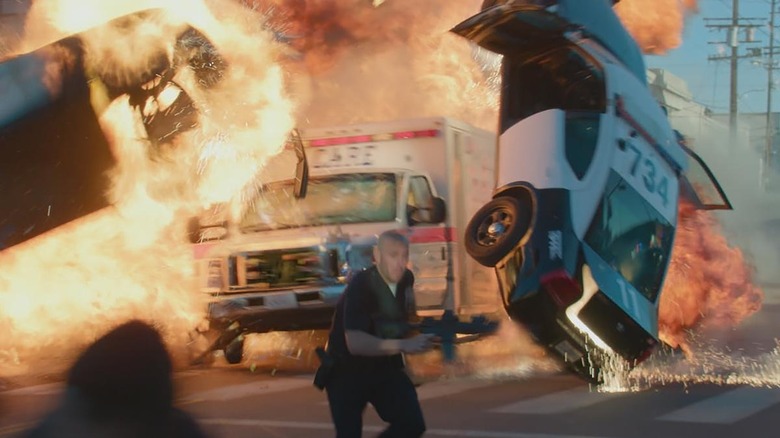Ambulance Review: Pure, Unadulterated Bayhem
Has Michael Bay changed, or have we? I'm old enough to remember a not-too-distant time when his films, especially the behemoth that was his "Transformers" franchise, were considered all that was wrong with cinema, each new sequel another nail in the medium's coffin. His films were labelled equally as crass, sexist eyesores: the very definition of lowest common denominator entertainment. That they were all blockbuster hits at the expense of more thoughtfully crafted films was a sign that cinema was dying right before our eyes.
Because of this, it's easy to have been caught off guard by the warm critical reception to his latest adrenaline-fueled opus, "Ambulance." Being released into a world of increasingly homogeneous multiplex offerings, where overarching cinematic universes rob many movies of any distinct directorial style, has led many reviewers to carefully reconsider their approach to Bayhem. It's not that "Ambulance" isn't as crass as any of his earlier outings, but that Bay's distinct style sets it apart from anything else getting a wide theatrical release — you can feel a definitive sense of authorship within every shot in a way that you can't with most recent studio releases. This may be damning with faint praise considering his style is already an acquired taste to start with. There's also the underlying concern that, if we're singling out the artistry of Michael Bay for praise, the death of cinema must have already happened for us to get here.
Bay's greatest achievement?
However, the rapturous response for "Ambulance" isn't unwarranted. This might not be Michael Bay's best or most enjoyable film, but it might be his most accomplished achievement: taking a slim (by his standards, anyway) $40 million budget and crafting one of his most ingenious technical marvels — essentially turning Los Angeles into a playground for car chases and elaborately conceived explosions. There's nothing within the narrative of "Ambulance" you haven't seen before. Hell, you might have even seen this narrative onscreen before, as it's a loose remake of a 2005 Danish film. But the craft that has gone into bringing it to life delivers awe-inspiring spectacle that papers over the familiarity, helping it keep a pulse as the sloppy pacing ensures it eventually overstays its welcome.
Yahya Abdul-Mateen II stars as Will Sharp, a veteran who is struggling to pay for his wife's advancing medical bills. With nowhere else to turn, he looks to his adopted brother Danny (Jake Gyllenhaal), a charismatic figure in the criminal underworld who ensures him he can get the money he needs — he just has to join him on a heist in downtown L.A. Things do not go to plan. A police officer abruptly shows up as they gather hostages to ask out a bank teller, and quickly sniffs that something is wrong; he's shot, and soon Will and Danny find themselves hijacking an ambulance belonging to EMT Cam Thompson (Eiza González), racing from cops across the city while a man in urgent need of medical attention lies next to them.
The most obvious technical innovation Bay has pioneered here is through the drone camerawork. Although he's used the technology before, most notably on "13 Hours: The Secret Soldiers of Benghazi," here he pushes it beyond its logical limits. Not content to simply fly across the city as the carnage unfolds, the director instead hurtles us directly into the wreckage; even as the film gets increasingly repetitive, Bay's drone work never loses its wow factor. It makes one of the director's most small-scale projects look like one of his most elaborately staged to date — a "Fury Road"-level auto-apocalypse unfolding entirely within the confines of the city's streets.
While much has been written about its accomplishments in craft, less time has been devoted to unpacking the other ways "Ambulance" feels like a breath of fresh air within Bay's oeuvre. This is a director who has routinely been lambasted for an inherent sexism in his work by critics as well as previous collaborators, who this time has offered not just the strongest female character within his filmography, but one that stands to challenge many long-standing archetypes of women in action movies. While Gyllenhaal captures the most attention through sheer force, chewing scenery like his paycheck depended on it, its González's Cam Thompson who winds up as the heart of the film; a role you suspect may have been less impactful in the earlier drafts of Chris Fedak's screenplay, but gradually grew as the world started to pay greater respects to frontline medical workers.
The comedown from the carnage
The uncomplicated moral compass of the character, and her unfailing need to help those on both sides of the law, make her the clear protagonist in a film that is otherwise about the limits we'd go to in order to protect those close to us. A director other than Michael Bay, who has in the past claimed to not be a political filmmaker, would probably heighten the parallels between Will and Cam to make a more overt commentary about the flaws in the American healthcare system for patients and practitioners alike — but Bay's films have a simple, earnest patriotism to them, with any cynical commentary only there to be inferred. In his mind, you suspect, a criticism of the system would mean criticizing the doctors who are saving lives because of their place within it, so any greater political discourse is dodged as a result.
Unlike other female protagonists of his films, Cam Thompson isn't the object of male affection; the camera doesn't ogle her like a "Transformers" romantic lead, nor does she have a shoehorned love interest to diminish her agency. Even when thrown in at the deep end, her character is treated with a reverence a patriotic action movie of this sort would typically reserve for the police or the military — and it can't help but feel refreshing for a healthcare worker to be treated as a national hero within this bombastic context.
However, there is a ceiling to my appreciation of "Ambulance," which would be a mightily entertaining action thriller if it weren't for one crucial setback: this is 90 minutes of carnage stretched to a needlessly overstuffed 136. Because of the very nature of the car chase genre, the progression of events can often feel repetitive despite the drone work and the events unfolding inside the ambulance. Meanwhile, the gradual introduction of several characters on the other side of the law who are trying to stop the ambulance in its tracks only serve to stall momentum whenever they appear onscreen. "Ambulance" is at its best when reveling in the vehicular carnage — but after the first act heist, events often stray far too into expository territory for their own good, repeatedly robbing the action spectacle of its urgency.
It's a shame, as "Ambulance" is otherwise top-tier Michael Bay: a work of cinematic carnage no other director could deliver. But whenever we cut away from the chase to spend time with law enforcement, it will be remarkable just how quickly you'll go from exhilaration to sheer boredom.


